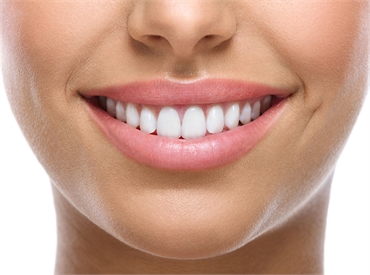How to Protect Your Teeth and Make Your Smile More Beautiful

A beautiful smile is more than just an indicator of a happy life, it can also tell a lot about the general state of your health
By looking at defects in the oral cavity, an experienced dentist can detect the presence of many diseases, such as diabetes, bulimia, or gastric ulcer. We want to tell you how to prevent the development of caries and preserve an attractive smile until old age.
1. Balance Your Nutrition
The American Dental Association claims that high fiber foods are the best natural protection against tooth decay and gum disease. Pears, apples, bananas, and strawberries cause profuse salivation which helps restore acid-base balance in the oral cavity, dissolves food debris, and improves digestion.
Citrus, berries, and other sour fruits can destroy tooth enamel and give the teeth a yellowish tint. You do not need to give up these products and it is enough to eat them together with cottage cheese, porridge, or granola. Drink more water and do not forget to brush your teeth after eating.
2. Stop Smoking
Nicotine, phenols, senic acid, and tar contained in cigarettes not only give the teeth a yellow hue but also corrode the gums, worsen the function of internal organs, and increase the risk of oral cancer. Tobacco smoke creates a favorable environment for bacteria that form plaque on the teeth along the gum line.
Smoking causes enamel to weaken and crack and destroys the bones that support the teeth which increases the risk of tooth loss. In addition, part of the harmful substances in cigarettes enter the esophagus together with saliva, irritating the walls of the stomach and duodenum. Heartburn, gastritis, ulcers, Crohn's disease, pancreatitis, and stomach cancer are common among smokers.
3. Choose Fluoride Toothpaste
Too much sugar in the diet is the main cause of tooth decay. Its molecules create a favorable environment for acid-forming bacteria that slowly corrode tooth enamel. According to the National Institute of the Oral and Craniofacial Regions in the US, acids harm the teeth most within the first 20 minutes after eating. This is called an “acid attack”.
The more often you eat sweets during the day, the more your teeth suffer from acids. To stop this process, family dentists recommend using toothpaste with fluoride. This element neutralizes the effect of acid, strengthens tooth enamel, and protects teeth from caries.
4. Use Floss
Dental floss does about 40% of the work in removing plaque and food debris from the teeth, and helps prevent gum inflammation. Each tooth has five surfaces and if you do not floss, then you’re leaving at least two surfaces unprotected from bacteria. Before you start flossing, consult your doctor as the flossing procedure has its own contraindications.
5. Do Not Forget to Clean Your Tongue
Most bacteria that cause tooth decay and bad breath are located on the tongue, not on the gums or teeth. One of the first doctors who proposed to observe the hygiene of the tongue was a Persian doctor Avicenna who used cypress cones as a cleaning device. Modern dentists have replaced them with plastic scrapers, spoons, or an ordinary brush with soft bristles.
Plaque-free tongue receptors more clearly perceive the taste of food, which prevents overeating and the appearance of excess weight while improving the function of your digestive system.

